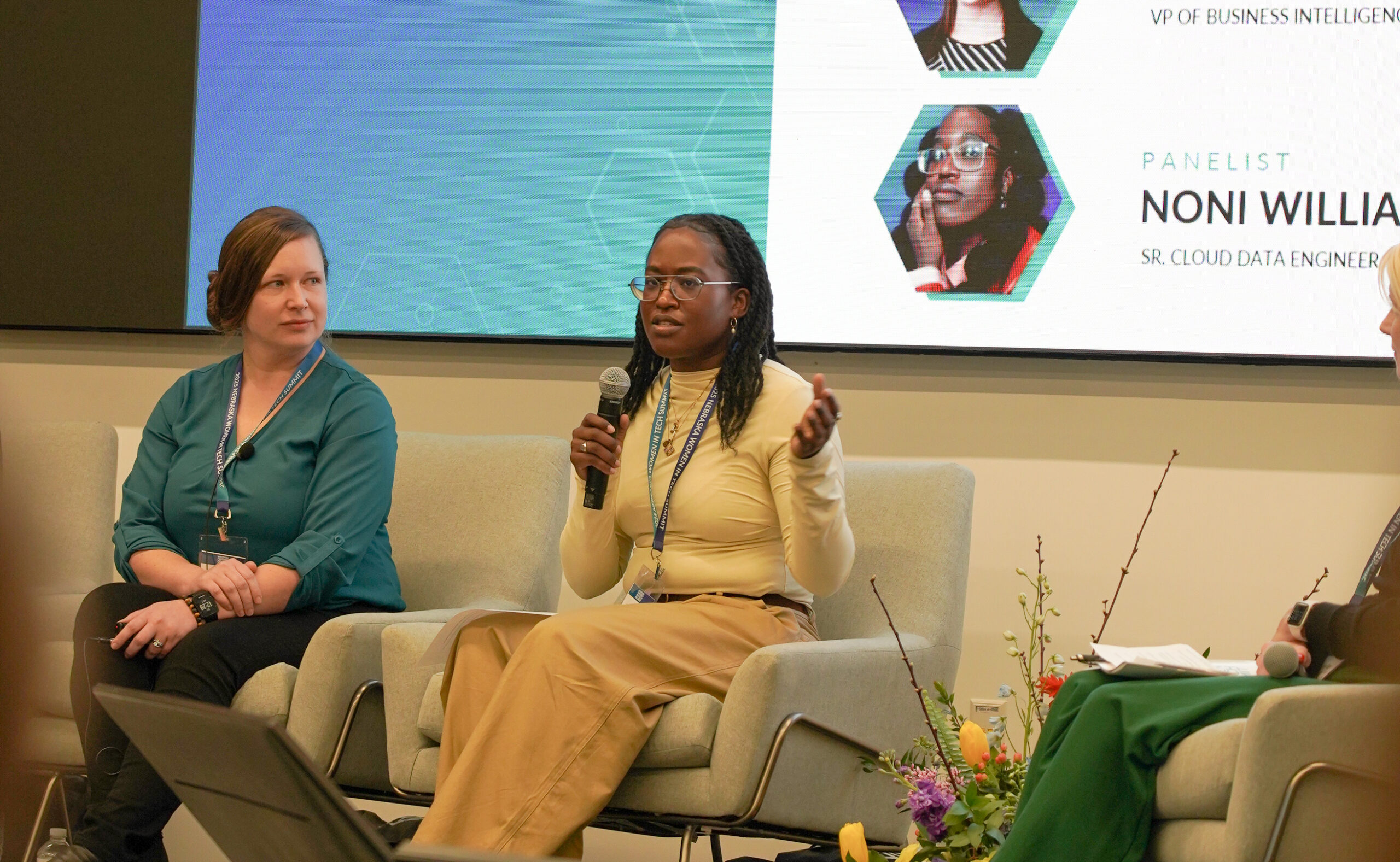
Turbine Flats is located at 2124 Y Street in Lincoln in an old manufacturing building constructed in 1907. During the 1940s, a company produced lockers for the war there.
The Turbine Flats Project is an “idea community” in Lincoln that began in 2008 with 22 people and 11,500 square feet. Today, some 75 employees work in the space, which has undergone one addition and is in the midst of a second.
In December we covered ISoft Data Systems and the company’s CEO, Matthew Wegener. ISoft Data Systems is part of the Turbine Flats Project, which essentially started when ISoft out-grew its old offices and relocated its four employees into a larger space on 9th Street in downtown Lincoln. “We had all this extra space, so we started renting space out to whoever would move in with us in the beginning,” Wegener said. “Then over the next five or six years, who those people were evolved into mostly early stage and start-up companies.”
He said that this trend was actually the beginning of Turbine Flats, although they didn’t know it then. At that time, ISoft Data Systems, Allied Strategy, Agile Sports (better known as Hudl), Phoenix Web Group and Professional Environmental Solutions were all housed together under the same roof.
Finding a new home
The working environment at the 9th Street location wasn’t exactly comfortable for employees, Wegener said. He said the building was really old and they would have to wear mittens while coding during the winter and then sweat it out in the summer. After eight years of weathering the swings in temperature, they decided to locate somewhere else. First, they asked each other if they wanted to move on as a group or individually. “ ‘Do we want to continue and scale this and stay together and bring in some more businesses,’ ” Wegener recalls asking, ” ‘or has it run its course and we’ll just go our separate ways again?’ It was pretty much unanimous that this was really cool and benefitted everybody there, so we started looking for space.”

“We came across this abandoned warehouse that a limousine company was storing limos in,” Wegener said. He and his wife, Donna Gould, bought the building at 2124 Y Street and leased the facility to the Turbine Flats Project. With almost a whole acre of property including parking and space for expansion, they started renovations in the spring of 2007.
Turbine Flats opened its doors in January of 2008, and by the spring of 2008 the facility was completely full with six companies and a total of 22 employees. Companies that moved into the space included: ISoft Data Systems, Allied Strategy, Play Creative, Nebraska Digital, Professional Environmental Solutions and Research Associates. Agile Sports decided to re-locate to Lincoln’s Haymarket district and Phoenix Web Group relocated to Waverly, just outside of Lincoln.
An old bank vault houses the server room for Turbine Flats. At one point the building was home to Cushman’s Credit Union.
An idea community
Fast forward to 2012, and several more companies call “The Flats” home: New Digital Group, MRail, Virtual Incision, Roger Holmes Workshops, Honest Policy, SEMCAT, Presage Analytics, Spartan Polling and Wamstad+Evans.
In the summer of 2011, Roger Holmes Workshops made a 3,000-square-foot addition. The addition currently in progress will increase the space by another 4,800 square feet.
Per its website, the Turbine Flats Project today is comprised of three major elements:
- The building itself
- The non-profit – The Turbine Flats Project has one mission: “To create a robust, self-sustaining, collaborative environment for small and start-up businesses to bring their products and ideas to market.” The non-profit focus aims to ensure that participants’ motivation is “not one of profiteering but of genuine interest and commitment to the furtherance of entrepreneurialism in Lincoln.”
- The community venture fund – A small, seed-stage investment fund is designed to provide a small and preferably matching funds injection into the idea community tenant companies.
Asked about where he got the idea for the incubator type of set-up, Wegener said, “It just happened. We call it an idea community, that’s our tagline. We refer to ourselves sometimes as an incubator so that people can understand what we are. But I don’t consider it an incubator for a couple of reasons: one, we don’t have an executive director that’s heavily involved in each business and it’s more of a co-op of peers; two, also we don’t take an investment stake in the businesses; three, I think we do a better job than a lot of incubators at forcing collaboration between businesses and we’ve spent a lot of time developing that and relationships along with that.”

Kevin Hagemoser (left), the executive director of the Turbine Flats Project, and Matthew Wegener of ISoft Data Systems stand in front of the newest addition to the facility. Photo by Kate Ellingson.
Sharing with the neighbors
At a point, companies within the Turbine Flats Project began trading employees, which Wegener said worked out well for everybody. “It’s always been like, ‘Hey, we were working on this project and now that project is completed and I’ve got this really great developer but I don’t have a spot for him right now, and you happen to be working on this project,’ and it just works,” Wegener said.
He says that the “idea community” helps keep bright people in Lincoln and helps their businesses succeed. “The employee knows the people across the hall and which projects they are working on, so it’s very quick for them to know what’s going on versus hiring someone from the outside,” he said.
Along with trading employees, the companies have also exchanged customers on various projects, and the idea community helps the individual companies seem bigger than they are because they can solve more problems quickly by tapping into their neighbor’s expertise.

Kevin Hagemoser works in the common area of Turbine Flats.
Image credits: Photos by Kate Ellingson.


